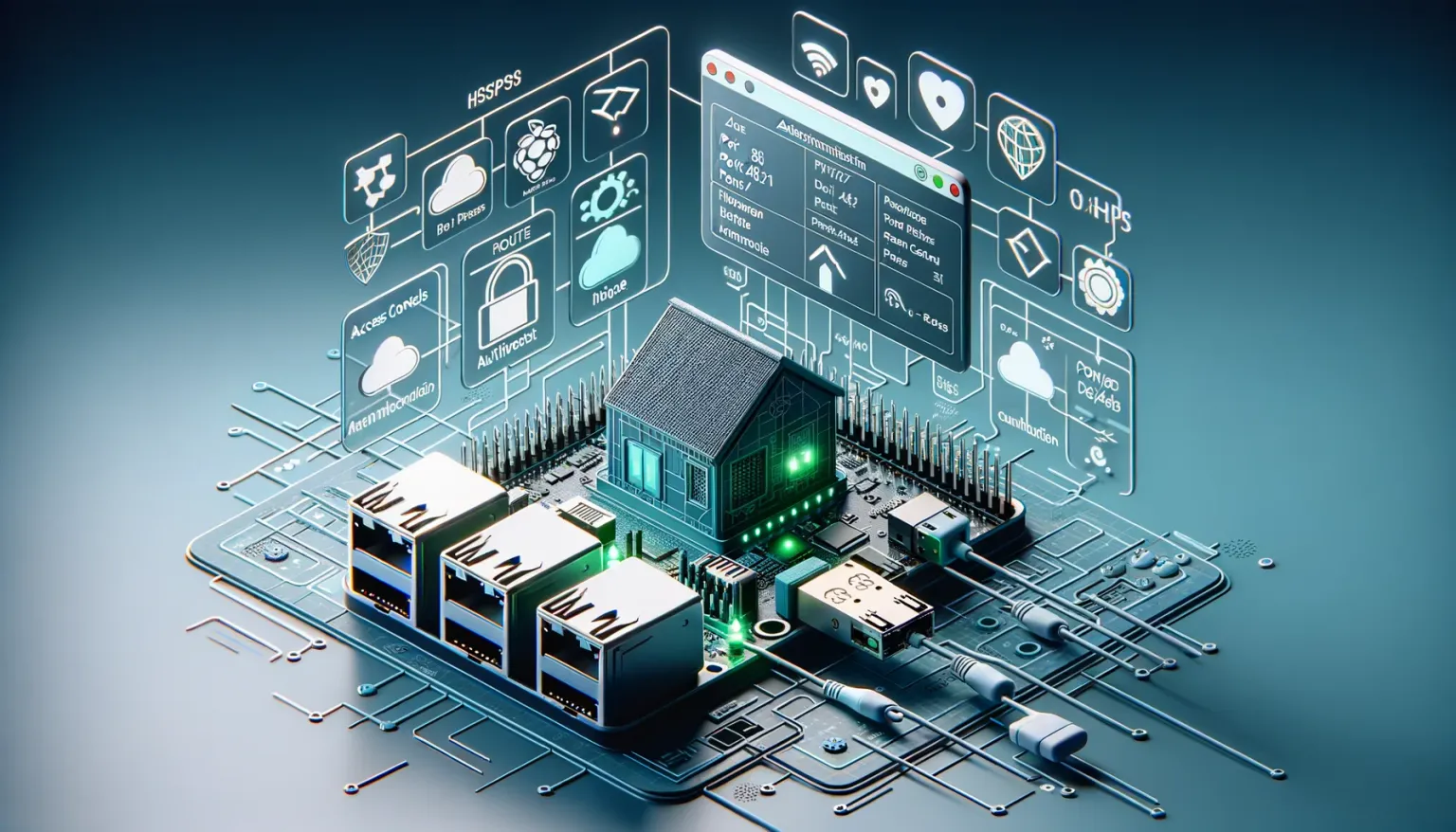Access Raspberry Pi Remotely from Anywhere (Easy Guide for Beginners)
Discover how to set up secure remote access to Raspberry Pi from an outside network. Learn to control your device remotely via desktop, terminal, or server.

Do you know how to enable the Raspberry Pi for truly remote access?
As you will know, the Raspberry Pi is a small, affordable computer that you can use for a variety of purposes, such as home media centers, retro gaming consoles, and even as a desktop computer. They’re amazing. I have at least 5 of them around my house, and I can reach them from anywhere in the world. Want to know how?
Short on time? We’ve got you:
- On the Pi, set up one of the remote access solutions described below. We like VNC, but
xrdpis solid too. - On the Pi, start a tunnel via
loclx, the LocalXpose CLI. (See loclx configuration.) - Now, you can use your public LocalXpose URL to reach your Raspberry Pi from anywhere in the world.
Want more information?
In the rest of this article, we will explore the various ways you can remotely access your Raspberry Pi and discuss the importance of port forwarding and reverse proxy solutions.
The Raspberry Pi is a great device to get started with home automation, network security, and the information in this guide can be applied to most internet-connected single-board computers (SBCs) like BeagleBone and many IoT devices as well.
Table of contents
- Can you control Raspberry Pi remotely?
- How do I make my Raspberry Pi accessible anywhere?
- Do I need to port forward in the Raspberry Pi?
- Is port forwarding to Raspberry Pi safe?
Can you control Raspberry Pi remotely?
Yes, it is possible to control a Raspberry Pi remotely. There are several different ways to go about this, including using a remote desktop application, SSH, or VNC.
A remote desktop application allows you to access and control your Raspberry Pi as if you were sitting right in front of it. One popular option is xrdp, which is available for Windows, macOS, iOS, and Linux. For this method, you will need to install the Remote Desktop client on your computer and configure the Raspberry Pi to accept incoming connections using RDP server.
Another option is to use SSH (Secure Shell) which is a command-line tool that allows you to remotely connect to and control your Raspberry Pi. To use SSH, you will need to install an SSH client on your computer, such as PuTTY for Windows, or Terminal for Mac and Linux, and you will need to enable the sshd daemon on your Pi. Once enabled, SSH will listen on port 22.
You can use a VNC (Virtual Network Computing) server to remotely access the Raspberry Pi’s desktop. VNC allows you to see and control the Raspberry Pi’s desktop from any device with a VNC client installed. To move ahead with this method, you will need to install a VNC server on the Raspberry Pi and a VNC client on your computer. VNC listens on a port corresponding to the display number (usually :0) for example, port 5900, port 5901, port 5902 and so on.
How do I make my Raspberry Pi accessible anywhere?
To make your Raspberry Pi accessible from anywhere, you will need to set up a static IP address and/or configure port forwarding on your router but this is not possible for many users because of multiple reasons like ISP restrictions.
The best thing you can do is leverage a reverse proxy solution like LocalXpose, LocalXpose will automate the process of port forwarding and bypass the ISP restrictions by creating a long running reverse tunnel from your machine to LocalXpose infrastructure. Let’s talk through an example of how this can work:
Consider a scenario where your Raspberry Pi is running a SSH server and it is listening on port 22/TCP and it is not accessible through the internet. Only those on your local area network will have access to the SSH.
To access your Raspberry Pi, you will need to use LocalXpose - which is a reverse proxy solution that enables you to expose your localhost to the internet. From your terminal, you can tell LocalXpose to forward any connections that come from the internet (on port 2222) to your local Raspberry Pi. The command will appear something like the below:
./loclx tunnel tcp --port 2222 --to localhost:22This type of command will produce an address for you, such as us.loclx.io:2222, which you can utilize outside your network to access your Raspberry Pi SSH server. Using IP whitelisting, LocalXpose’s reverse proxy will help you grant access to specific IP addresses, making it clear that only those you authorize are able to access your Raspberry Pi.
Do I need to port forward in the Raspberry Pi?
No, you do not need to configure port forwarding on the Raspberry Pi if you are using LocalXpose since it will automate the port forwarding process for you, just run the above command and you are ready to access your Raspberry Pi remotely.
Is port forwarding to Raspberry Pi safe?
Port forwarding is a convenient way to access your Raspberry Pi remotely, but it also introduces security risks. When you open a port on your router and forward incoming connections to the Raspberry Pi, it’s essential to use a reverse proxy solution like LocalXpose that offers secure tunnels. With LocalXpose, you can start an end2end tunnel with your own certificate.
Are you ready to get started? Set up Raspberry Pi remote access with LocalXpose today.